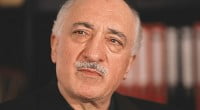Fethullah Gülen’s prospects for inter-religious dialogue

Date posted: November 2, 2007
DOUGLAS PRATT*
Fethullah Gülen has emerged as one of the most persuasive and influential voices in the Muslim community calling for dialogue as a step toward peace.
Indeed, he offers “a way to live out Islamic values amidst the complex demands of modern societies and to engage in ongoing dialogue and cooperation with people of other religions.”
In what way does Gülen signal new perspectives and transitions for contemporary Islam in a world of manifest religious plurality? I suggest that, from Gülen, we may derive seven elements for a possible contemporary Islamic paradigm for inter-religious relations and dialogue.
1. Distinction of values: primary and secondary
Indeed, it is clear that for Gülen, primary values such as “peace, love, forgiveness, and tolerance are fundamental to Islam,” whereas values such as jihad are regarded as a secondary matter. Keeping these categories of primary and secondary value distinguished and in proper perspective is critical, for as Gülen avers, “failure to establish a proper balance between what is primary and what is secondary leads others to conclude that Islam advocates malice and hatred in the soul, whereas true Muslims are full of love and affection for all creation.”
2. Intentionality: a principal perspective
Intentionality is also an important element of Islamic thought and a key to Gülen’s perspective: “In every task undertaken, there should be a certain meaning, sincerity should be sought, and reason and good judgment should be the priority.” Gülen remarks that the “Prophet of God said: ‘Deeds are judged by intentions,’ and he emphasized that the intention of the believer is more important than the act itself.” Intentionality is applied naturally to the sphere of interfaith engagement.
3. Tolerance: an inherent element
Gülen argues that: “Society has to uphold tolerance. If we don’t announce jihad for anything else, we should announce it for tolerance.” Tolerance — together with forgiveness — is a virtue enjoined throughout the Quran such that, in the contemporary context of today, Gülen is quite clear: Muslims are to “behave with tolerance and forbearance” in the interfaith arena. In his critique of certain Muslim propensities he asserts that “the method of those who act with enmity and hatred, who view everyone else with anger, and who blacken others as infidels is non-Islamic, for Islam is a religion of love and tolerance.”
4. Dialogue: an expression of a divinely inspired love
Gülen arguably regards interfaith dialogue as an expression of a divinely-inspired love, for the primary theological verity that binds together all peoples of the Book — Jews, Christians and Muslims especially — is the belief in God as Creator. The act of creation is not that of arbitrary whim but intentional love of the Creator for the creature. Gülen is himself succinct and to the point: “Those who seek to build the happy world of the future on foundations of spiritual and moral values should arrive first at the altar of belief, then ascend to the pulpit of love, and only then preach their message of belief and love to others”. The complementarity of tolerance and love as being not just human virtues but in reality indicators of primary values which the Creator imbued the creation underscores an essential oneness of human existence that itself suggests dialogue is the right and proper mode of interaction.
5. Reconciliation: the essence of religion
The motif of religion as a force for and of reconciliation is very strong with Gülen. Indeed, love, compassion, tolerance and forgiveness are at the heart of all religions. It is thus of the nature of religion to promote the values and virtues that engender reconciliation. Specifically, for Islam, the Quran itself enjoins reconciliation with the wider religious context of the Peoples of the Book, a view that Gülen derives directly from Sura al-Baqara.
6. Hermeneutical authority for dialogue
Gülen recognizes the need to read the Quran carefully and intelligently when it comes, for example, to the issue of specific relations with Jews and Christians. Some expressions in the Quran regarding Christianity and Judaism are indeed very sharp and rather negative, even hostile in some cases. At best there seems to be a measure of revelatory paradox. But such paradox may be the effect of taking things out of context, or at least not taking context sufficiently into account. As Gülen himself remarks, it was not Christianity or Judaism that was the subject of condemnation but rather “the Quran goes after wrong behavior, incorrect thought, and resistance to the truth, creation of hostility, and non-commendable characteristics.” Rather than counting against dialogue, a careful and correct contextual reading of the Quran would seem to be advocated by Gülen. In this way a proper interpretive Muslim authority for dialogue may be discerned.
7. Ijtihad: the struggle for dialogue
The final element in a possible Islamic paradigm for inter-religious dialogue and relations has to do with the notion of ijtihad as meaning a proper intellectual and spiritual struggle. Gülen believes that there is a need for ijtihad in our age. He argues that Islam is a dynamic and universal religion that covers all time and space and renews itself in real life situations; it changes from one context to another and ijtihad is a major tool in enabling this. The essence of Gülen’s paradigm is nothing less than the application of ijtihad to the question and challenge of Muslim interfaith relations. Hence, “tolerance of others and genuine interfaith dialogue are not simply a pleasant ideal that will be fulfilled in some future paradise, but …[are]… at the core of what it is to be Muslim in the here and now.” Indeed, Gülen argues that dialogue is demanded by the very nature of religion as such.
Gülen certainly offers “Muslims a way to live out Islamic values amidst the complex demands of modern societies and to engage in ongoing dialogue and cooperation with people of other religions.” Dialogue with Gülen and the movement that bears his name is an avenue wherein the non-Muslim can join with Muslims in the greater journey of the dialogical quest.
* Associate Professor Douglas Pratt is the chair of the department of philosophy and religious studies at the University of Waikato, New Zealand.
Source: Today's Zaman , November 1, 2007
Tags: Dialogue | Fethullah Gulen |
























